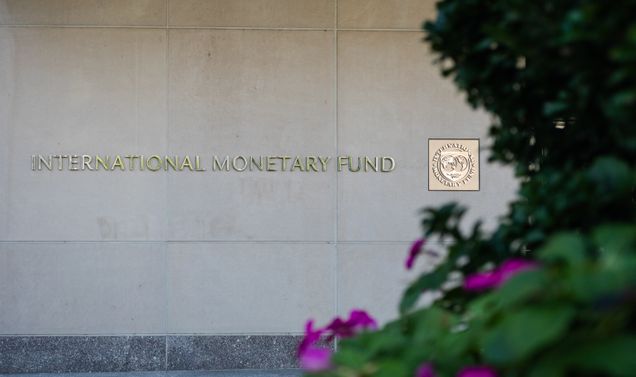No Voice for the Vulnerable: Climate Change and the Need for Quota Reform at the IMF

In 2021, the International Monetary Fund (IMF) committed to incorporate climate-related issues into its operations and is in the process of developing frameworks and policies. The IMF’s governance structure will impact the decision-making process on how these frameworks will be developed, with a quota system based on countries’ economic share determining formal voting power.
Concurrently, the IMF is currently conducting a regular review of its quota governance structure, providing a timely opportunity to review the concentration of decision-making power with a handful of advanced economies at the Fund.
A new working paper by the Boston University Global Development Policy Center illuminates how decision-making power is distributed within the IMF, as well as the implications of the quota share on the IMF’s lending practices, fee structures and distribution of newly allocated reserves. The paper finds climate vulnerable countries have negligible formal decision-making power over how the IMF frames its policies around climate.
When joining the IMF, each country is assigned a quota share, based on several factors that are meant to reflect its relative size within the global economy. Voting power is directly linked to the size of countries’ quotas, which means that low- and middle-income countries that are most likely to borrow from the IMF and be subject to its conditions have limited influence on the IMF’s decisions.
The Vulnerable Group of Twenty (V20) Ministers of Finance of the Climate Vulnerable Forum is a dedicated initiative of 55 climate vulnerable countries working through dialogue and action to tackle global climate change. The V20 is at the epicenter of the looming debt and climate crises which threaten their ability to mobilize the necessary resources to build resilient and low-carbon economies. When scarce public finances are mostly spent on debt service rather than on investments to build a more resilient economy, countries will be locking into a cycle of unsustainable debt further fueled by climate impacts.
Main findings:
- The largest IMF shareholder is the United States, with 17.4 percent of all quota shares, followed by Japan with 6.5 percent, while a majority of member countries have individual quotas of less than 0.1 percent.
- Given its effective veto power, any changes to the quota formula must be approved by the US.
- If quotas were redistributed based on the formula approved during the last increase, the US would lose its veto, and China would double its current quota.
- Since the IMF was established, 15 reviews of quotas have been concluded, out of which nine resulted in an increase of quota shares. The largest increase doubled quota shares and was agreed upon in 2010 and went into effect in 2016. This increased the voting shares of some developing and emerging countries, but overall advanced economies kept their majority.
- This was one of two increases in the last 30 years. Compared to 1980, the size of the world economy in 2022 is 9.2 times larger, and 12 times larger when adjusted for purchasing power parity, while IMF quotas are only 6.4 times larger.
- In the last two decades, there have been seven IMF programs in advanced economies out of a total of 275 IMF programs completed by countries since 2002. Most programs are concentrated outside of advanced economies, with 117 in sub-Saharan Africa.
- The V20 has almost 17 percent of the world population (close to 1.3 billion people) but holds about 5 percent of voting power at the IMF. However, in the last 20 years, over one-third of all IMF programs have been in V20 countries.
- With 13.7 percent of the world’s population, advanced economies have 59.1 percent of the votes at the IMF. By contrast, sub-Saharan Africa, with a slightly larger population, holds 4.6 percent of the voting power. Emerging and developing Asia is the most underrepresented region, both in terms of its share in the global economy, as well as the share of population living there. Climate vulnerable countries have almost 17 percent of the world’s population but 5.3 percent of votes at the IMF.
- The Group of 20 (G20) have about 78 percent of voting shares together and are home to most of the world population. While the G20 format still excludes many countries, it is more representative than the Group of 7 (G7). Members of the G7 have 41 percent of voting power but only 10 percent of the world population.
- For many emerging and developing countries, voting power is weaker on the Executive Board based on the makeup of the Executive Director office they are a part of.
- For the V20 at the IMF Executive Board, they effectively have no voting power; by contrast, voting power increases for the G7 and G20 based on Executive Board distribution.
- The IMF charges penalties to countries that borrow above 187.5 percent of their quota through the main lending account. Of 16 active loans, 12 countries have agreed to borrow amounts that are above the threshold for paying surcharges. With a majority of countries requiring loans that surpass that threshold, it raises the question of adequacy of quotas and borrowing access limits.
In all, the lack of representation of climate vulnerable and developing countries in the IMF’s formal decision-making process stresses the need to reform the current quota system if the IMF is to maintain both its legitimacy and relevance in the coming decades. The current quota review is a timely opportunity for countries such as the US, or other members of the G7 who have stated their commitment to multilateralism, to prove they can deliver on a system that is both accountable to and meets the needs of all members.
Read the Working Paper